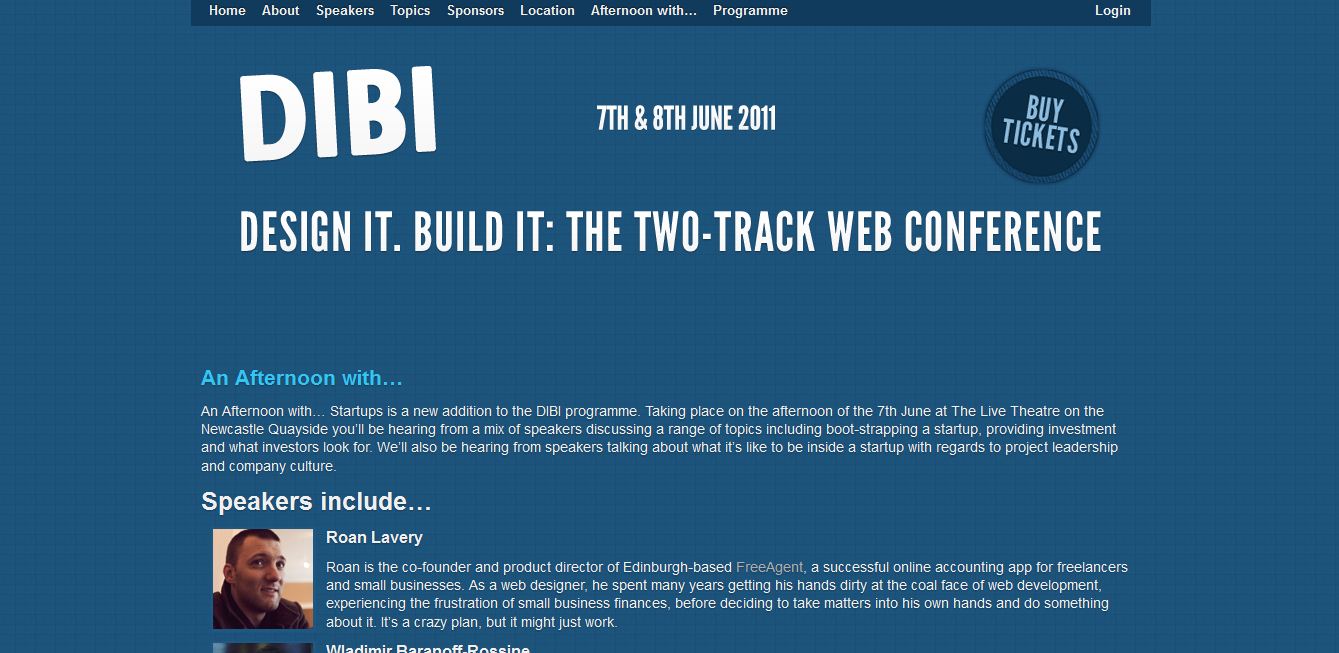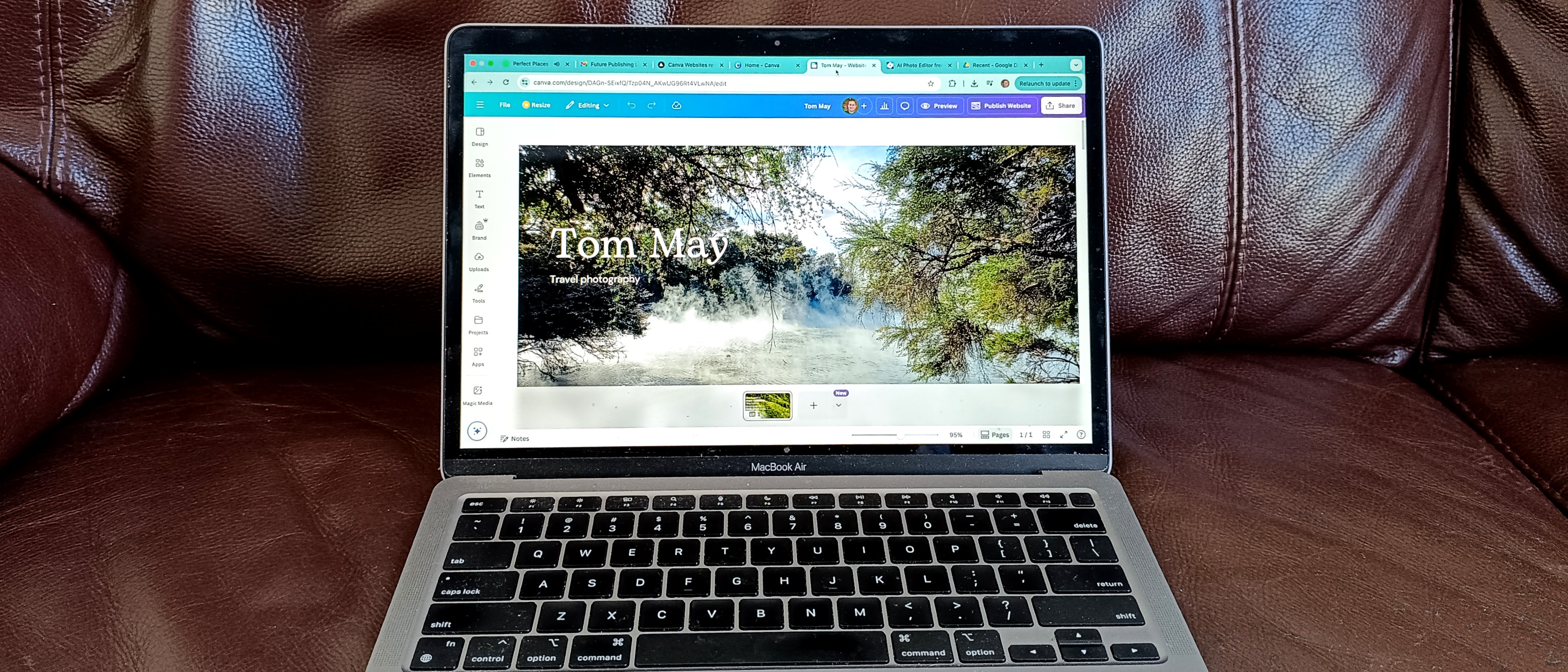Report: DIBI's afternoon with startups
Startup founders share the secrets of their success as Newcastle's DIBI conference kicks off

As a warm-up for today's Design It, Build It conference (short: DIBI), attendees were yesterday treated to an afternoon with startups, a series of inspiring stories and practical advice for aspiring entrepreneurs.
After a short intro by organiser Gavin Elliott, Kevin Mann, founder of online comics reader Graphic.ly took to the stage to talk about the benefits of being a CEO. He told a motivational (or depressing, depending on where you're coming from) anecdote of a CEO who got himself a super-beefed up laptop just because he could, thus wasting company money. Instead Mann argued, a CEO's character should be based on submission and humility, self discipline, patience and accountability. It's crucial to be humble and hire people that are better than you and try to be accountable early on.
Happy vision
Next up was Bobby Paterson, CEO of social motivation network happie.st, who explained that in order to run a successful startup, among other things you need to identify the problem you're trying to solve right from the start and have a vision. For happie.st, for example, it's to "make the world smile from the inside out". For further reading Paterson recommended Guy Kawasaki's Enchantment and The Art of the Start as well as Tony Hsieh's Delivering Happiness.
Graham Morley, chief creative officer of Thap, developing apps that specialise in mobile messaging, meanwhile, talked about Lean UX and streamlined user experience design. He argued startups needed to be user focused, agile in delivery and flexible in their approach. If you put individuals and interactions over processes and tools, you can respond to change much better and have a winning formula, said Morley. "Lean UX is about getting the whole team involved and designing in the open right from the start," he went on. Finally, Morley recommended Steve Krug's book Rocket Surgery Made Easy to find out how to do your own usability testing.
Big picture
Roan Lavery of FreeAgent Central, an accounting app aimed at startups, talked about creating a successful app. "As a startup, you're not building features," he began. "You're not even solving problems. What you're doing is improving people's lives." It's only by taking a step back and referring to this "big picture" that you can keep improving your app in a way that will keep pace with an environment of constant innovation and rising expectations. "Keep asking whether the problem you're trying to solve is the one you should be focusing on," he urged.
Lavery questioned the orthodoxy that apps, or the concept behind them, should be as simple as possible. "We all want simple and easy," he said. "Yet as consumers we're ever more demanding. Solve a hard problem and people will love you for it. And they'll be willing to pay for it. It also creates a barrier to entry that makes it harder for people to copy what you've done."
The investor's view
The day was brought to a close by Jonathan Gold, an early-stage venture capital investor. He explained that the North-East of England was actually ahead of the US in terms of innovative new seed funding models and a great place to get your startup off the ground. However, he lamented that many web companies fail to put enough thought into the finance and investment side of their business, while it's something that needs to be considered early on. "Basically, it's often the last thing people think about," he said. "But remember that people like me are investing in a business, not a product."
Get the Creative Bloq Newsletter
Daily design news, reviews, how-tos and more, as picked by the editors.
Gold added that a business plan is "just a communication tool, not an end in itself" and that you need to pay attention to the market. Finally, he emphasised that it's important to talk to VCs at an early stage. "Start the conversation: that doesn't mean necessarily asking for money, but get the communication and ideas flowing. Don't leave it until the product is finished."
Gold admitted "the terms and conditions can look nasty" but said they're necessary to protect the investor. In return, you gain a partner and a lot of invaluable expertise. "And remember that it does take money to raise money. So choose your advisor carefully and spend some money on professional advice." Only one in 100 enquiries to his company actually gets funded, and 40 per cent of all startups fail, he said. But this isn't necessarily a bad thing, because it doesn't need to be a barrier to pursuing further funding for a new project.
The actual web conference continues today.

Thank you for reading 5 articles this month* Join now for unlimited access
Enjoy your first month for just £1 / $1 / €1
*Read 5 free articles per month without a subscription

Join now for unlimited access
Try first month for just £1 / $1 / €1

The Creative Bloq team is made up of a group of art and design enthusiasts, and has changed and evolved since Creative Bloq began back in 2012. The current website team consists of eight full-time members of staff: Editor Georgia Coggan, Deputy Editor Rosie Hilder, Ecommerce Editor Beren Neale, Senior News Editor Daniel Piper, Editor, Digital Art and 3D Ian Dean, Tech Reviews Editor Erlingur Einarsson, Ecommerce Writer Beth Nicholls and Staff Writer Natalie Fear, as well as a roster of freelancers from around the world. The ImagineFX magazine team also pitch in, ensuring that content from leading digital art publication ImagineFX is represented on Creative Bloq.
